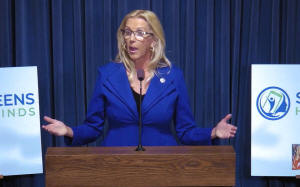|
According to the Citizens Utility Board, Aqua Illinois and
Illinois American Water customers are affected by proposed rate
hikes, which could cost households nearly $30 a month.
Illinois State Rep. Dagmara Avelar said inflation has made
everyday costs burdensome, especially for lower and fixed-income
households.
“The utility increase makes it difficult for families to
survive. It actually adds another rising cost to already high
bills,” Avelar said.
Illinois State Rep. Nabeela Syed said Aqua Illinois filed a
$19.2 million rate-hike request after the company failed to
deliver water to homes in Lake County for five days last summer.
“A rate hike, especially one this substantial on the heels of
that failure, is absolutely inexcusable,” Syed said.
The Illinois Commerce Commission is expected to rule in November
on the proposed rate increases by Aqua. The ICC ruling for
Illinois American’s proposal is slated for December.
Illinois lawmakers have proposed legislation to address high
water bills.
Avelar introduced House Bill 2721 last year.
The measure would remove language which allows the Illinois
Commerce Commission to authorize surcharges by water and sewage
companies to pay for new water and waste systems.
“We have families right now that are paying more in fees than
their actual water usage, and that is just not right,” Avelar
said.
Republican State Sen. Sue Rezin said she filed Senate Bill 1131
to give the public a voice.
“The legislation mandates that before any city council can sell
a municipal water system to a for-profit company, a referendum
must be held and approved by the voters,” Rezin said.
Rezin said higher water bills and loss of local control are
among the effects of House Bill 4508, which became law in 2018.
Rezin and the Citizens Utility Board opposed that legislation.
|
|




